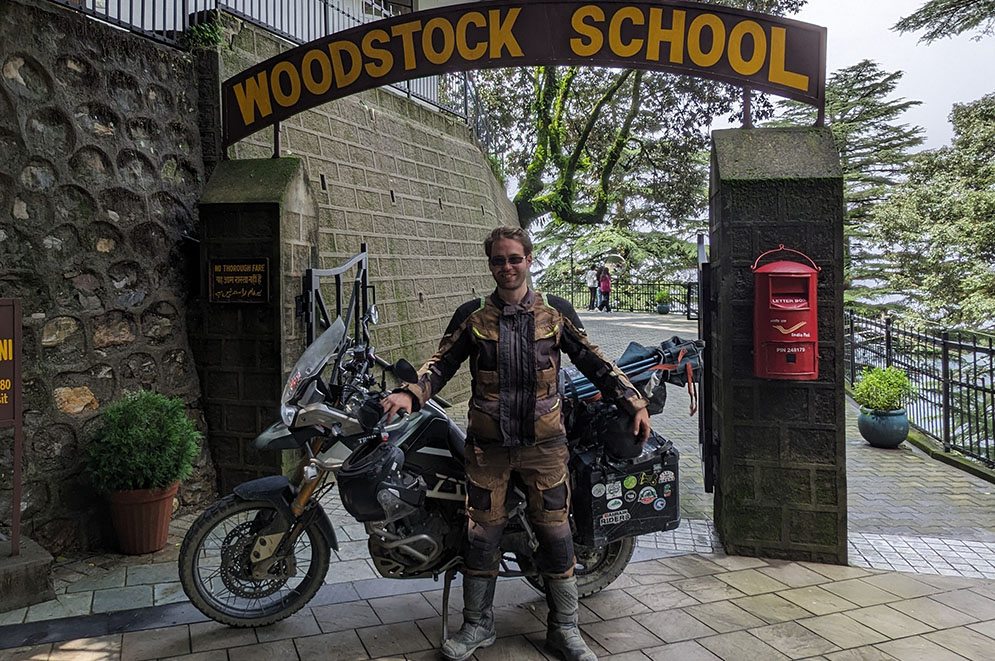
31 Oct Alumni Spotlight – Benjamin Godbersen ’05
Benjamin Godbersen, Class of 2005, embarked on an epic motorcycle journey from Germany, traversing numerous countries before arriving in India this year. His final stop and heartwarming homecoming took place at Woodstock School 20 years to the day from the first time Benjamin set foot on campus. Current Woodstock student and Advancement and Alumni Office intern Anthony ’25 sat down with Benjamin to delve into his incredible adventures. We hope you enjoy this interview and allow yourself to be transported by the mesmerizing pictures from Benjamin’s remarkable motorcycle expedition all the way from Germany to Woodstock School!
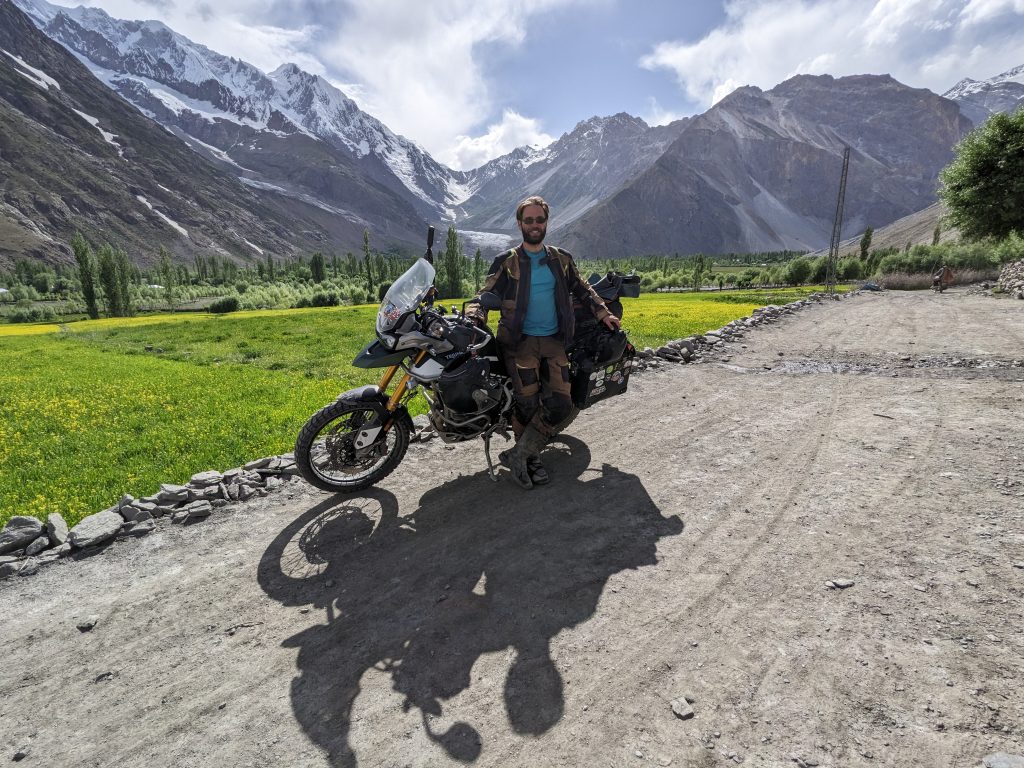
Benjamin in Darkut, Pakistan
Anthony: I have to ask: What inspired you to bike throughout India?
Benjamin: Well, it was really no big plan or progression. One thing after another came together, and that’s really how it ended up happening. I had planned to visit India and Woodstock in 2020. But then of course COVID 19 and the pandemic happened, which meant I couldn’t fly as I had planned to. Instead, I started riding around Europe when the lockdown ended. I really liked it and decided, “Okay, I need a bigger bike to ride roads that are a bit of more difficult”. And then eventually I was like, “Why not take the motorcycle all the way to India, to the original destination?” Then that idea came together with my longstanding wish to visit Ladakh by motorcycle. So, in the end, it turned out to be my own motorcycle that I got to Ladakh. And that’s how it all came to be. That’s how things sometimes evolve.
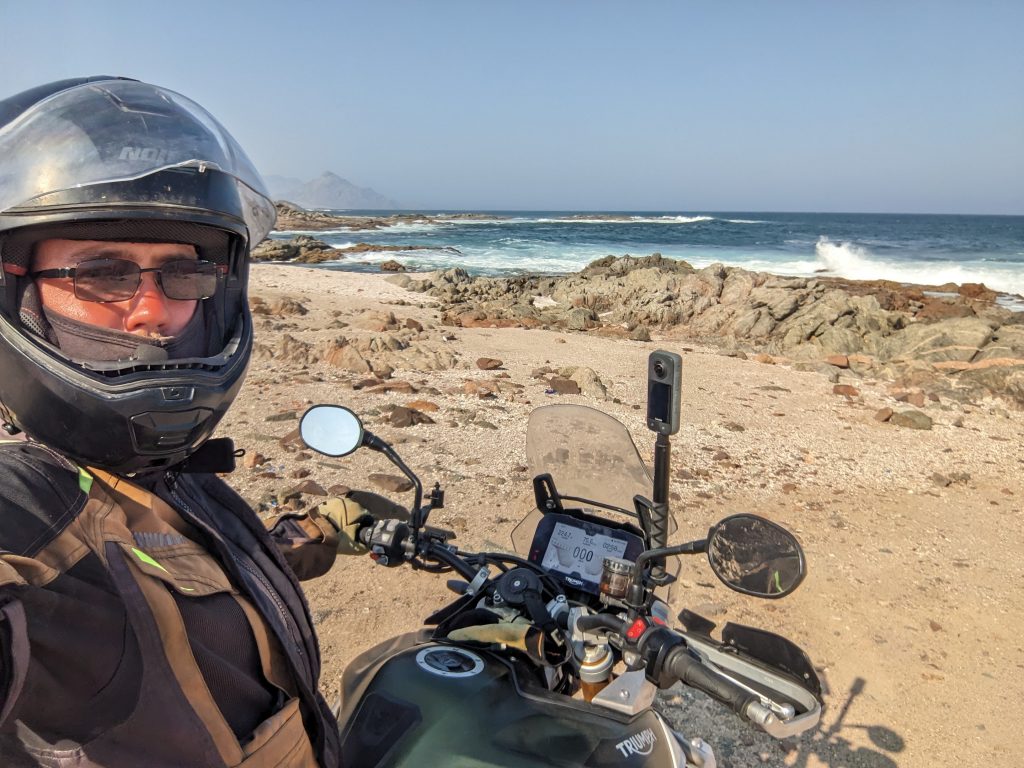
Indian Ocean Oman
Anthony: That’s super interesting. Is it true that you biked all the way here from Germany?
Benjamin: Yes. And it was not on the fast route either. As I just mentioned I rode around Europe in 2020 and 2021. I had my new bike and I started driving around Europe towards Central Asia, but Central Asia was still under lockdown. Actually, it’s still not very accessible. I was riding for a few months that year, then my bike broke. It was so broken that I needed to get a new bike, and not need to deal with insurance. So, in 2022, I started again and with some breaks, I made it to India now in 2023. It’s been a lot of kilometers and a lot of places in between Germany and Woodstock!
Anthony: That’s lovely. You must have gone through so many countries. Which do you feel had the biggest impact on you?
Benjamin: Oh, that’s difficult to say. Usually when I travel through an area or a country there’s always something that sticks. For example, in 2021 I was riding through Turkey a lot. That was really challenging road wise because I was getting used to being on the road so much. Then this year, I travelled through the Arabian Peninsula for several months, and that was a very new experience both culture wise and also landscape wise because I’ve never been there before. There’s no one country or one area that had the most impact, but in summary, traveling tends to be a big learning experience and I’m very thankful for all the little things that I experienced here or there.
- Chain trouble in Wadi Disa Saudi
- Desert in Oman
Anthony: As well as what you learned, I’m sure there’s some really crazy, interesting stories on your way here. Do you have any that you’d like to share?
Benjamin: Yeah. When people ask the question, – because I do get that question asked a lot – I always ask,” what kind of story do you want?” I shared that I travelled to countries like Iraq and Pakistan, so I have my share of stories with security forces and quite a few stories from border crossings that didn’t go so smoothly. There are definitely plenty of stories where I was pushed to the limits of my riding abilities. I also have stories where the bike had issues. Luckily, my bike has been very reliable but sometimes there are little accidents that happen or small mechanical things that need some kind of attention – and that has happened in the middle of nowhere. And I definitely have plenty of stories of meeting great people and having good interactions. So, it’s always a story. What kind of story do you want to hear?
- At a beach in Oman
- At the border of India and Pakistan
- Maraya Saudi
Anthony: Maybe a personal favourite of yours?
Benjamin: Well, then, let me talk about the riding itself, because like I said, I got an all-new bike and just to be able to ride across more difficult terrain. I first attempted that in Bosnia. It was great. We had some beautiful days riding unpaved roads which were almost never used, and the terrain was very similar to off road terrain. On the second day, the road turned quite bad, and I was really pushed to my limits. In the end, I was on a very steep downslope with my abilities that did not allow me to turn around or get out of there. So, I was literally falling down the mountain, more or less. It was a road but made of really big rocks. So, I was falling, my bike was dropping left and right quite literally, and at the end I was so exhausted that I walked down the mountain to the next village. I was very lucky that the village was near a town, unlike many other places I’ve been. I had to ask people to walk up with me and guide my bike and my motorcycle down. The locals helped me get everything in order and invited me for food, and that was quite nice. Bosnian people were really nice. If I compare that to now, like, especially now that I’m in India and the terrain that I’ve rode in Ladakh, it’s obviously way more remote than it would’ve been in Bosnia. That kind of also showed me the way I’ve come and my abilities as a rider. So that was good. A trip is always a mix of happy moments and challenging moments that at least bring me sometimes to the absolute edge of my sanity. Realizing that demonstrates on just how many levels I’ve been able to learn on this trip. It’s quite nice. It’s definitely the big overarching story that traveling for me always is a way of learning and it’s really rewarding for me to see that all the things that happened, all the challenges that I faced, have upsides to them. That’s generally what I enjoy about traveling.
- Peak of Nanga Prabat Pakistan
- Red Sea Saudi
- Umling La India
Anthony: Yeah, it’s really lovely to hear. While we’re on the topic of memories, do you have any favorite memories from Woodstock?
Benjamin: Well, Woodstock that was definitely one of my first big challenges. I was at Woodstock as an exchange student, so I was there for only one year, my junior year, and that was a challenge in itself. When I arrived at Woodstock, I came straight from Germany, on an airplane by myself. It was my first time outside of Europe my first time on such a big trip. Woodstock took good care of me and made sure that I got picked up at the airport and all that, but at Woodstock itself, I still remember how in the first semester I barely spoke English well enough to understand what was going on in class. And by the end of the year – or even I have to say by the second semester – young brains are a bit more flexible in the second semester – I didn’t have any trouble at all with speaking English! So, I always remember that. And of course, during the winter break I also got to see some parts of India. Boarding schools have this element of making students self-sufficient in a very special environment and for me to experience that in an environment like Woodstock had a pretty big impact on me. The one reason why I keep coming back is because nature has been so impressive. The foothills of the Himalayas really are special and have a special place in my heart.
- Banks of Indus Pakistan
- Basho Meadows Pakistan
Anthony: That’s incredibly sweet. So, after you had come to Woodstock for a year, what was next for you? You were here in Woodstock for a year and as an exchange student, but then post that, what was next for you? What did you do after?
Benjamin: Yeah, so since I was just there as an exchange student, I did come back to Germany to finish my high school. Germany is a bit fidgety with accepting attendant degrees, and they certainly don’t like or appreciate SATs and APs. For me to be able to study in Germany seamlessly I needed to have a German high school degree. I did that.
- Wadi Shuwaymiyyah Oman
- Issues with Police in Pakistan
Anthony: Okay. Lovely. I have to ask: How do you sustain this kind of lifestyle with your work?
Benjamin: Yeah. Most people at Woodstock of course are in a fortunate enough position to be able to do that one way or another. It all started with simple savings, but I do run my own company and part of it is, of course, finding something that you can do while you’re on the road. What qualifies is that it’s usually any kind of service that you provide, that you can provide without being co-located with whoever is your client or customer. I personally run a consulting company and while I’m riding, I reduce my hours. But that’s also why I’ve taken so long to ride to India, because I do take breaks and invest more time in working to keep the business running.
Anthony: Do you have any tips for young enthusiasts who may want to bike across the country?
Benjamin: I think the number one tip I can give is not to have illusions about it. Just because I am able to travel a lot or work while I’m on the road, work still remains work and needs some focus and dedication. This means that a long-distance ride doesn’t amount to one big holiday trip. It rather needs some very precise planning and thinking to balance everything. So, what I would recommend as a tip is to make a list of things that are important, prioritize what you really want to do. I’m in the lucky situation of what I do for work. It’s also something that I really enjoy. I enjoy working with people and helping them solve their problems. And one tip that I would give is to make a list with priorities that has things that are really important because that enables you or at least helps you to make decisions or know what has to take priority. To make an example, you can make a list with a lot of things you want to do, but as long as you don’t have somebody who pays your bills somewhere along the list, there needs to be some sort of time invested in earning money, right? And for that I would give the tip to really think, okay what do I want to do? What do I want to experience in life? And then balance that with the things that need to happen for that. A few of us are gifted with a big inheritance that enables us to never work again, or I don’t know, they say, “if you have a trust fund, that might run out and if you marry rich, it might not last”. So, think about what’s really important to yourself and then take that clarity to prioritize the actions and then you can probably make most things work. I mean, people who study at Woodstock, like I said earlier, are usually fortunate enough to start with a good education, good high school education and almost always continue usually at a good school that enables good things down the road. So that’s a good starting point for whatever you want to do. In the end, you just need to prioritize the actions and get going. I can tell you even the riding part, it’s not always fun and games like I described earlier. So don’t expect, if you want a lifestyle like that, don’t expect only because you’re now not earning money that that’s all going to be fun and games. So yeah, don’t be too delusional to come back to my first point.
Anthony: Sounds like you’ve spent a lot of time in introspection. And that leads me to have to ask: Why did you want to return to Woodstock?
Benjamin: Um, I think that’s a personal thing. I know I have classmates who really wouldn’t be as keen to come back but for me, yeah, I think the experience I had, you know, what I described earlier, being away from home and being able to experience so many new and unknown things in one place and at the same time learning and enjoying the environment for me Woodstock is a place that, holds a dear place in my heart. And so, every now and again it draws me to visit to see what’s going on and also to visit the mountains.
Anthony: Yeah, I mean, you mentioned other classmates. Who are you still in touch with from Woodstock?
Benjamin: Well, it was quite interesting arriving in India. I haven’t met any of my classmates in India. Along the way, actually, in Dubai, I met some of my classmates. That was fun. But as it goes with Woodstock alumni, many of them don’t stay in India when they’re from India, and of course, mostly everyone else goes back to their country or to the U.S. or Canada. The class of 2005, in three years we have our 25-year anniversary coming up.
Anthony: Yeah, that’ll be fun. We’ll see you guys here again. What would you say to your younger self as an exchange student at Woodstock?
Benjamin: I’d say I probably would tell him to relax. Then I would tell them to get his priorities straight. Knowing what you want in life can, or really will shape whatever you do in life. And in a positive way mostly. I know it’s not always easy, I remember at that age it’s surely not easy, you might not have a plan about life, and I’m not telling you to do that, but at any particular moment, you probably have things that you do want to experience, and you don’t want to experience. The more clearly you deal with it, or you introspect, or you think about that, the more likely things that will happen and the more likely things are going to evolve. So, I think that’s something I would say for sure. Chill and think about what’s really important for you in your life, because you see in others or what you think is important because others do it or have it might not actually be what you need or want. And the earlier you start thinking about it, the more likely you are to achieve it at the end of it.
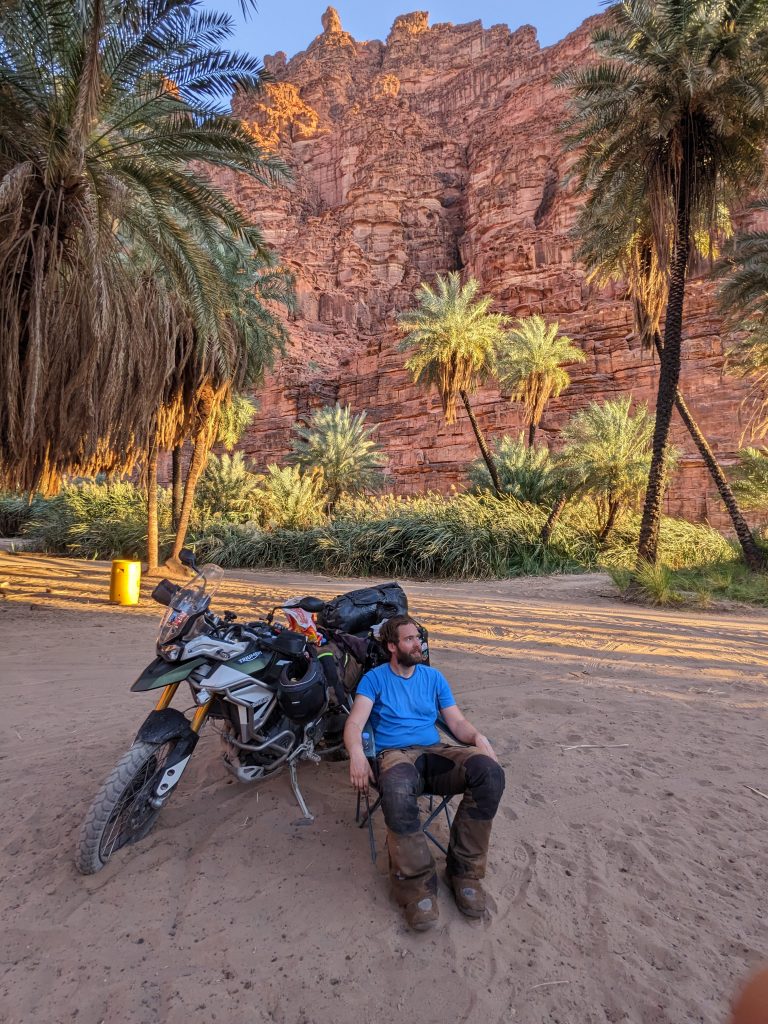
Wadi Disa Saudi
Anthony: That’s wonderful! Is there anything else you’d like to share or add?
Benjamin: There is one thing I’ve learned not only on this trip, but on my trips before that as well: Most people in this world are nice people. And the countries I’ve travelled to, the last country before India was Pakistan and the Arabian Peninsula. Most people I meet are generally nice people and I think that’s one thing that I like about our world, like with all the bad things happening in this world, with all the animosities and hatred between groups, even the wars that are happening when you meet people, most of them will be nice. They will try to help you, or I can talk about myself, and they’ll try to help me if I have an issue. They will be kind to me. When I came to that place, it was as remote as it was. I tried to do the same thing and it’s not always easy. We are all human beings; we all have our emotions. But one thing I’d like to share is, try to be nice to people. You know, there’s no reason for people not to be nice. Life is already difficult enough as it is, and the world already has enough hatred as it is. So really try to spread that kindness to others. That’s really what I’ve learned in life.
Anthony: That’s a great message, and I think that’s a really good place to end it off as well. Thank you so much for coming and having this interview with me. Really appreciate you taking time out of your day.
Benjamin: Sure, thank you.
Interview by Anthony, Class of 2025
[/vc_column_text][/vc_column][/vc_row]






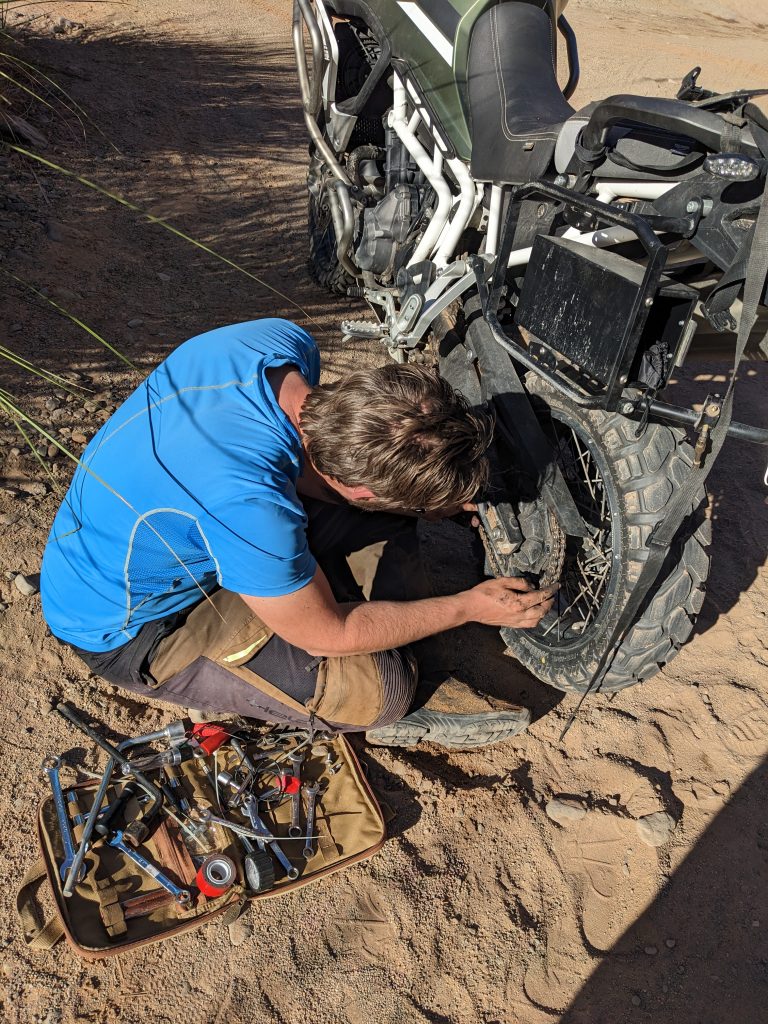
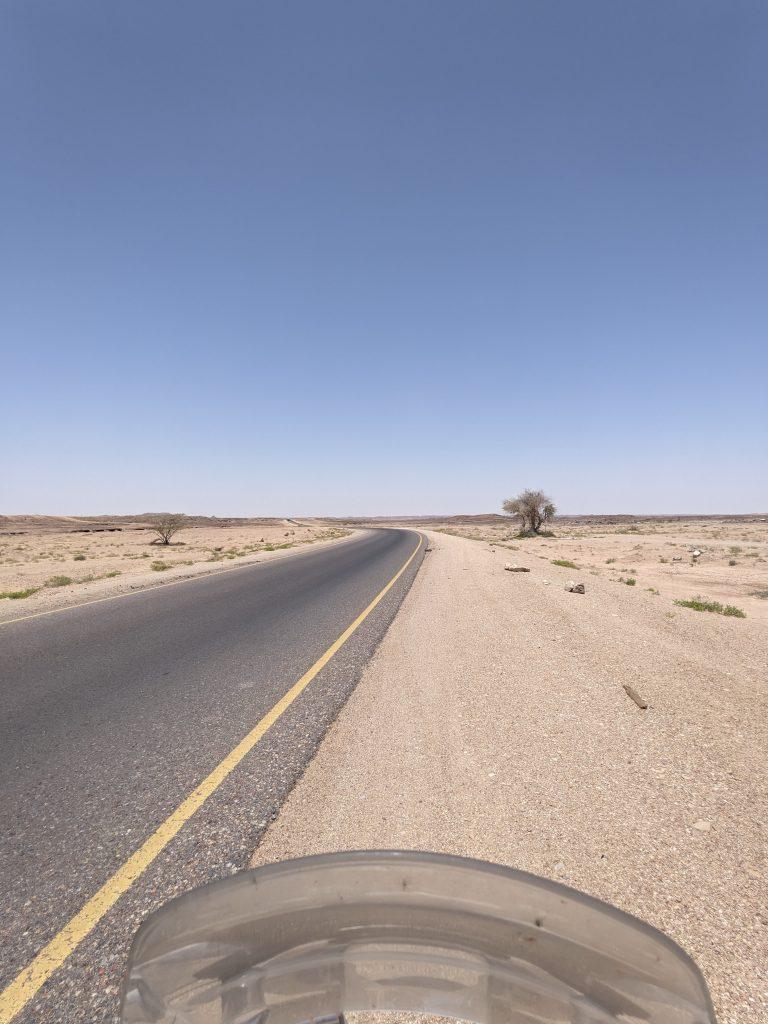
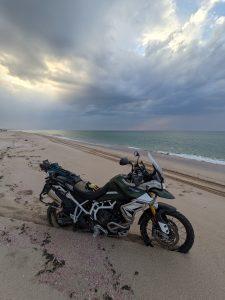
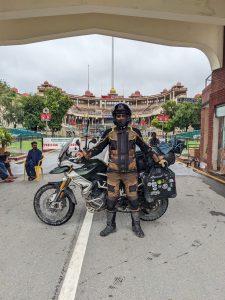
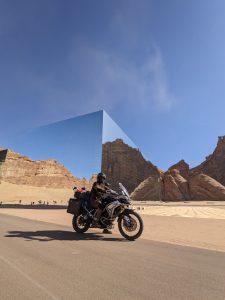
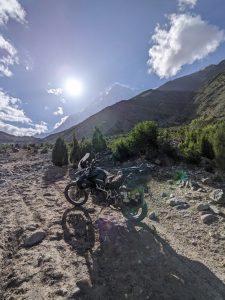
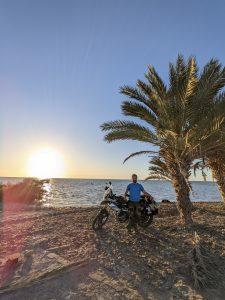
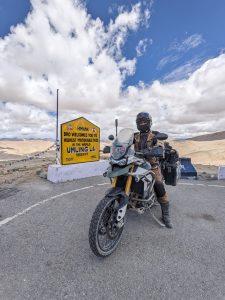
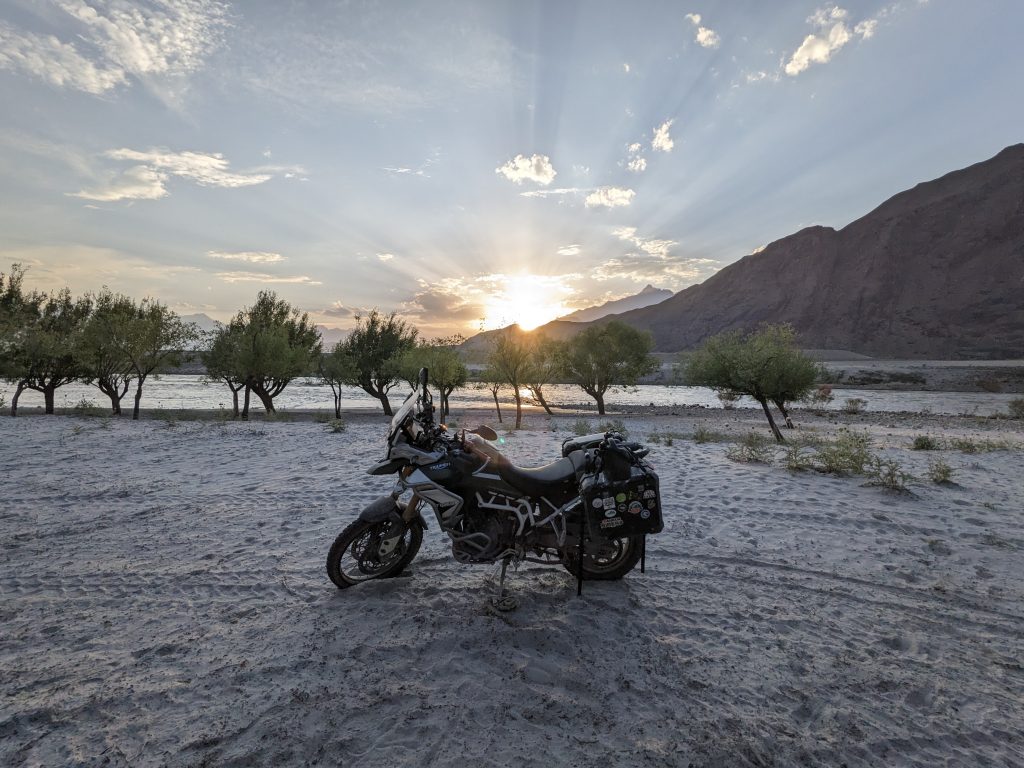
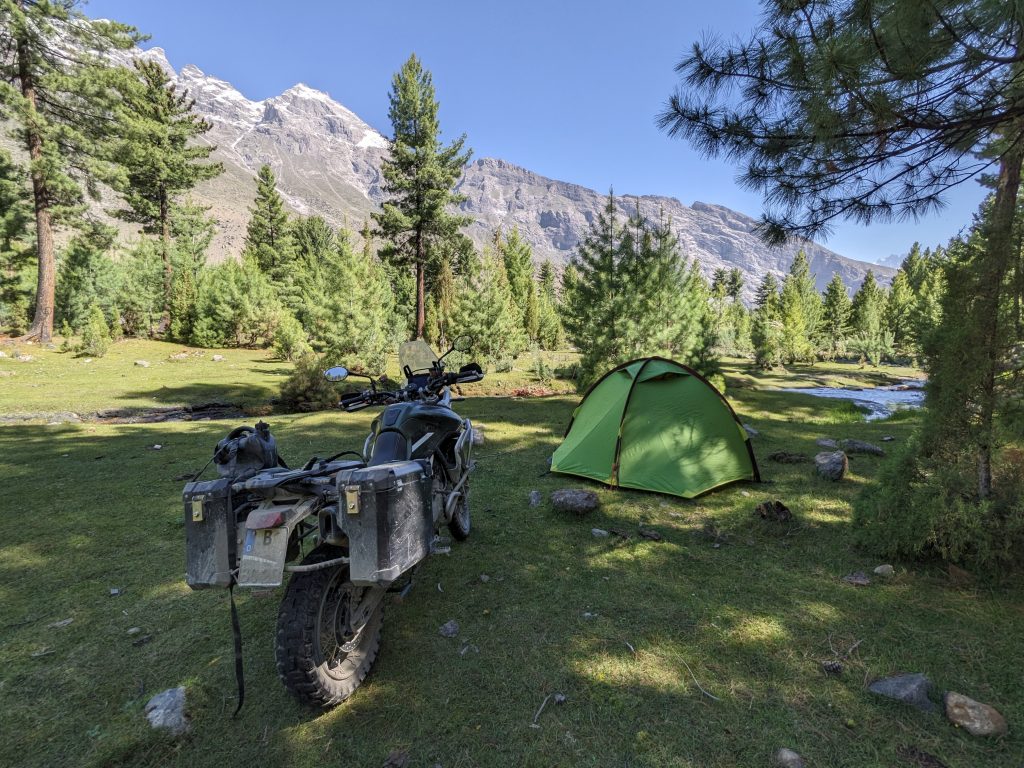
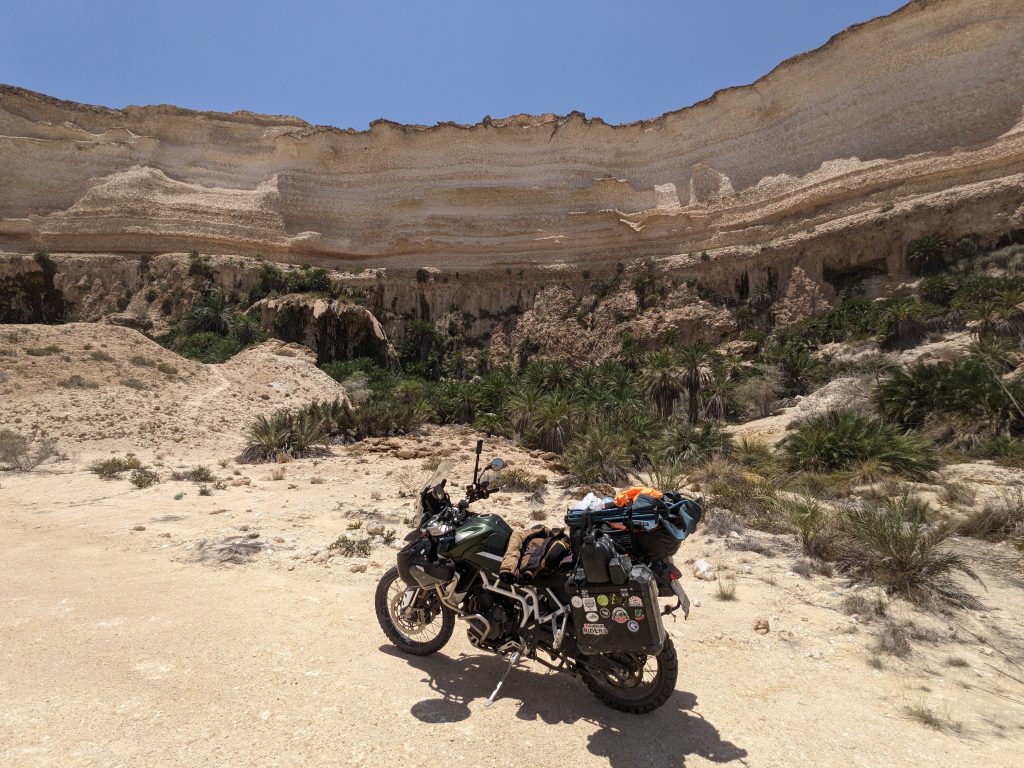
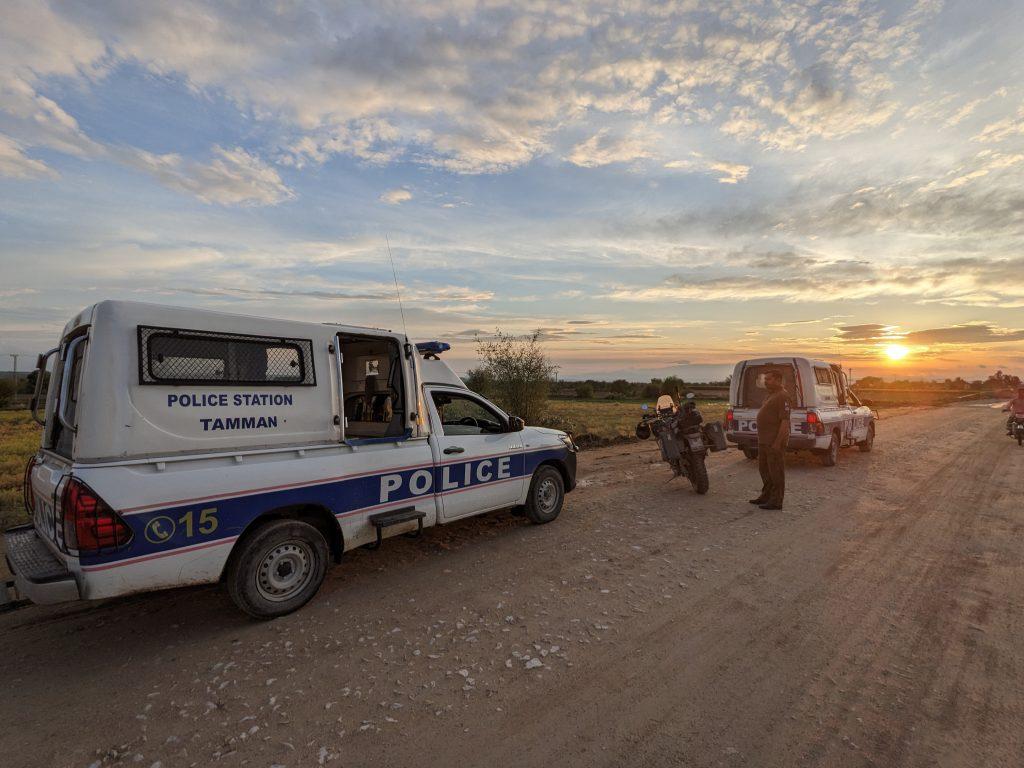
Tenzing Nema
Posted at 09:22h, 10 NovemberAs we used to say back in the 70s and 80s “ way to be, man”